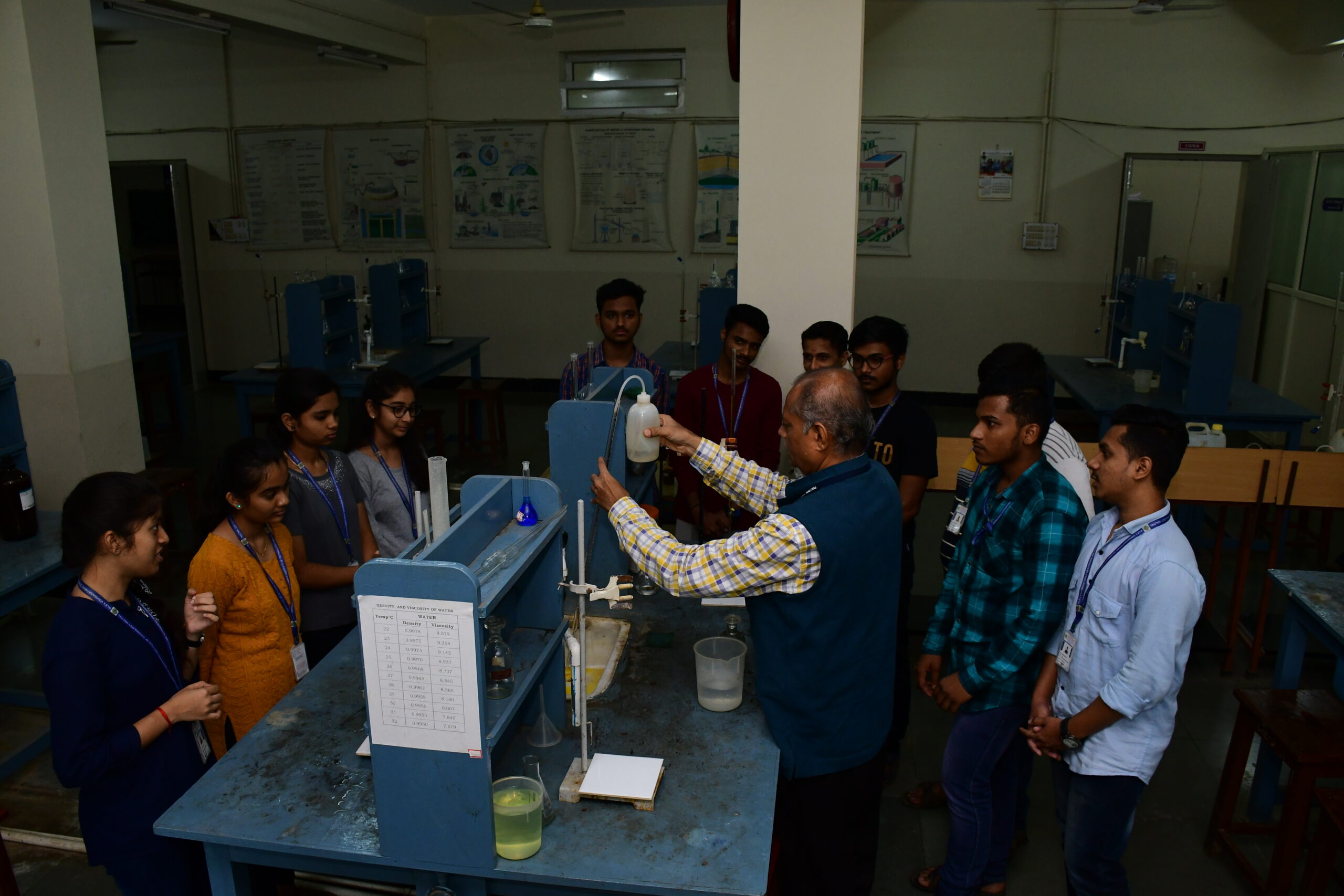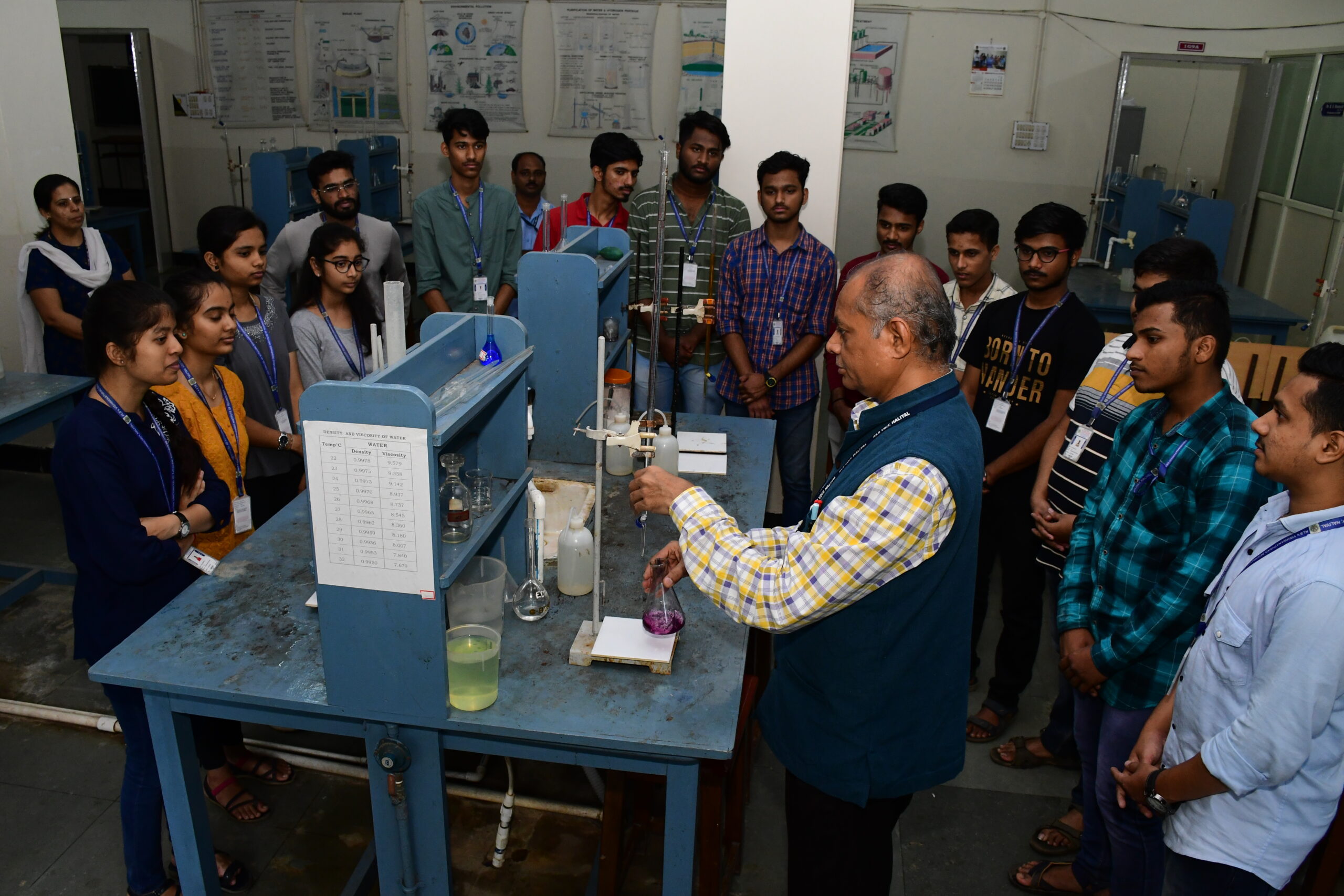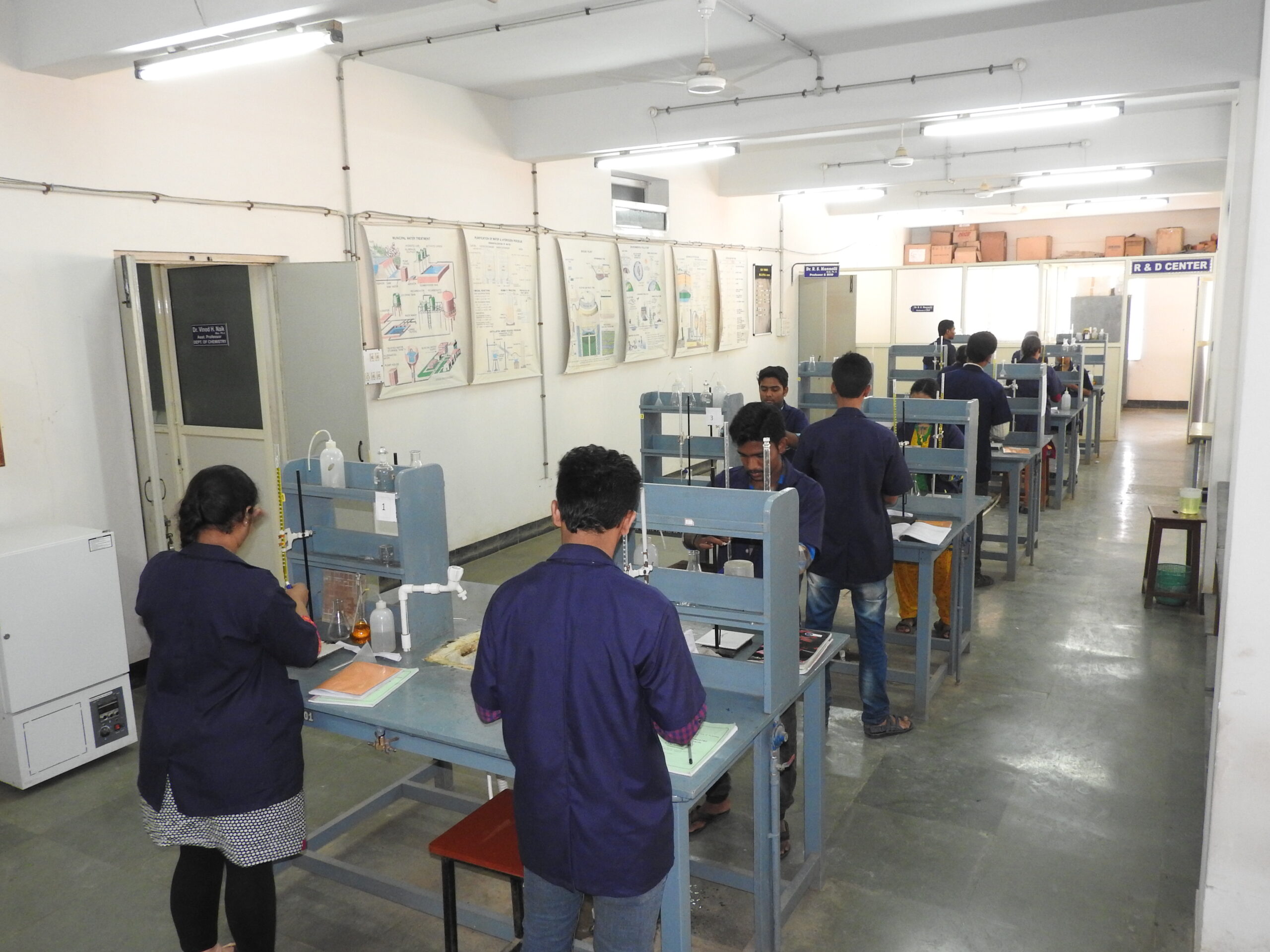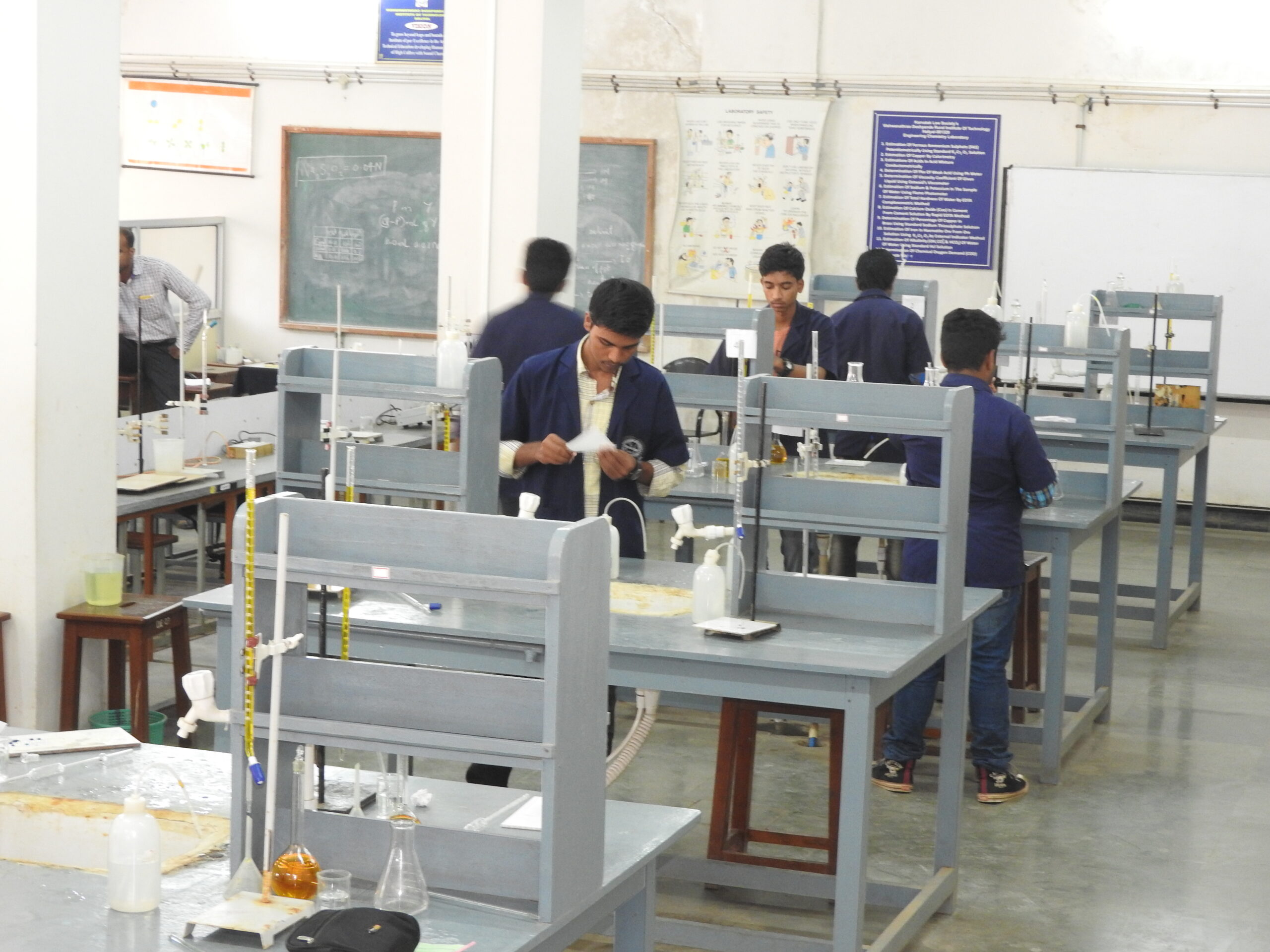
Department of Chemistry is established in the year 2004 to offer basic principles of chemistry with a focus on applied aspects to undergraduate engineering students. The department has always accomplished the best results at University examinations. The strength of the department is sincere and dedicated team of highly qualified and experienced faculty with affection for teaching and research.
The department aims at instilling a sense of keen observation and analysis in the minds of students, instigate the analytical skills in students and help the students excel in academic standards. The department also aspires to develop a full-fledged Research and Development Center in Chemistry, cultivating an inclination in students / staff to take up research, which will be of help to the industries and society at large.
The department is recognized as “Research Center” in the year 2010 and offers Ph.D./M.Sc.(Engg.) program by research, which is affiliated to Visvesvaraya Technological University, Belagavi.
Department of Chemistry
Upcoming Events
Our Vision
To grow profusely as departments of par excellence in the area of scientific education developing human resources of towering talents with sensible temperament.
Our Mission
To train students to emerge as exceptionally skilled technocrats enthralled with scientific approach, with a sense of social responsibility.
Programme Outcomes
- Engineering knowledge: Apply the knowledge of mathematics, science, engineering fundamentals, and an engineering specialization to the solution of complex engineering problems.
- Problem analysis: Identity, formulate, review research literature, and analyze complex engineering problems reaching substantiated conclusions using the first principles of mathematics, natural sciences, and engineering sciences.
- Design/development of solutions: Design solutions for complex engineering problems and design system components or processes that meet the specified needs with appropriate consideration for public health and safety and cultural, societal, and environmental considerations.
- Conduct investigations of complex problems: Use research-based knowledge and research methods including design of experiments, analysis, interpretation of data, and synthesis of the information to provide valid conclusions.
- Modern tool usage: Create, select, and apply appropriate techniques, resources, and modern engineering and IT tools including prediction and modeling to complex engineering achieves with an understanding of the limitations.
- The engineer and society: Apply to reason informed by the contextual knowledge to assess societal, health, safety, legal and cultural issues and the consequent responsibilities relevant to the professional engineering practice.
- Environment and sustainability: Understand the impact of professional engineering solutions in societal and environmental contexts and demonstrate the knowledge of and need for sustainable development.
- Ethics: Apply ethical principles and commit to professional ethics and responsibilities and norms of the engineering practice.
- Individual and team work: Function effectively as an individual and as a member or leader in diverse teams and in multidisciplinary settings.
- Communication: Communicate effectively on complex engineering activities with the engineering community and with society at large, such as being able to comprehend and write effective reports and design documentation, make effective presentations and give and receive clear instructions.
- Project management and finance: Demonstrate knowledge and understanding of the engineering and management principles and apply these to one’s own work, as a member and leader in a team, to manage projects and in multidisciplinary environments.
- Life-long learning: Recognize the need for, and have the preparation and ability to engage in independent and life-long learning in the broadest context of technological change.
Chemistry Lab





